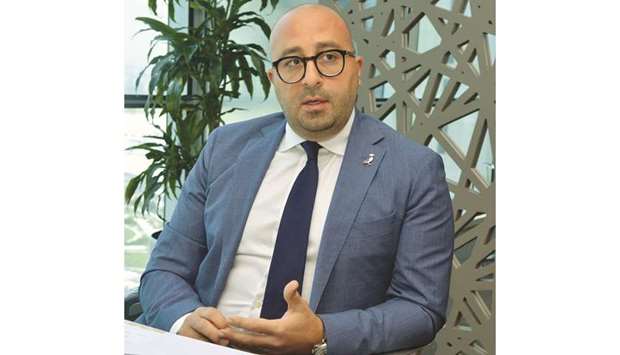Projects related to Qatar’s hosting of the 2022 FIFA World Cup have played a key role in attracting foreign direct investment (FDI) inflow despite the impact Covid-19 had on world economies.
According to Charbel Maakaron, managing partner of Crowell & Moring, while the pandemic “slowed down” FDI inflow globally, “the influx of foreign investments into Qatar did not stop.”
“Like any sensible investor, foreign investors coming to Qatar paused and waited because the investment climate is different and there was a lot of uncertainty. But now we’re seeing that there is movement towards Qatar again,” Maakaron told Gulf Times.
He said, “It is moving at a rapid pace on two considerations: First, for some investors this movement is driven by the World Cup – it is a deadline that has to be met on time, so for businesses that are supporting the World Cup they need to accelerate their investment and operations to be on the ground in Qatar in time for the event.”
“Second, for businesses that held back a little, they're seeing that the market is moving and they want to make sure that they're catching up; they don't want to miss out on opportunities or on potential growth and projects.”
Citing businesses in Qatar’s retail sector, Maakaron said investors shifted and adjusted their operations “to continue their success in Qatar” amid the consequences of the pandemic, such as the closure of shops, malls, and similar enterprises, which were implemented for a certain period to curb the spread of Covid-19 infections.
“Fortunately, we have an advanced technology infrastructure in Qatar supported by a legal framework that facilitated transitioning certain businesses to an online platform or a hybrid e-commerce model. And with the initiatives put forward by the Ministry of Transport and Communications (MoTC) and the Ministry of Commerce and Industry (MoCI), there was a clear directive to facilitate requirements and procedures in order for these businesses to push forward their online platforms.
“We have assisted many clients in digitalising their businesses, so while they still have their brick and mortar store, they also shifted to an e-commerce platform or a hybrid model and it's moving along very well,” Maakaron explained.
He added: “We've seen how food delivery applications saved the food and beverage (F&B) sector, and the same thing is happening with the retail sector: Online stores are allowing people to continue to shop and that would not have been possible without having the infrastructure in Qatar – from the technology, telecommunications, regulations, and laws.”
According to Charbel Maakaron, managing partner of Crowell & Moring, while the pandemic “slowed down” FDI inflow globally, “the influx of foreign investments into Qatar did not stop.”
“Like any sensible investor, foreign investors coming to Qatar paused and waited because the investment climate is different and there was a lot of uncertainty. But now we’re seeing that there is movement towards Qatar again,” Maakaron told Gulf Times.
He said, “It is moving at a rapid pace on two considerations: First, for some investors this movement is driven by the World Cup – it is a deadline that has to be met on time, so for businesses that are supporting the World Cup they need to accelerate their investment and operations to be on the ground in Qatar in time for the event.”
“Second, for businesses that held back a little, they're seeing that the market is moving and they want to make sure that they're catching up; they don't want to miss out on opportunities or on potential growth and projects.”
Citing businesses in Qatar’s retail sector, Maakaron said investors shifted and adjusted their operations “to continue their success in Qatar” amid the consequences of the pandemic, such as the closure of shops, malls, and similar enterprises, which were implemented for a certain period to curb the spread of Covid-19 infections.
“Fortunately, we have an advanced technology infrastructure in Qatar supported by a legal framework that facilitated transitioning certain businesses to an online platform or a hybrid e-commerce model. And with the initiatives put forward by the Ministry of Transport and Communications (MoTC) and the Ministry of Commerce and Industry (MoCI), there was a clear directive to facilitate requirements and procedures in order for these businesses to push forward their online platforms.
“We have assisted many clients in digitalising their businesses, so while they still have their brick and mortar store, they also shifted to an e-commerce platform or a hybrid model and it's moving along very well,” Maakaron explained.
He added: “We've seen how food delivery applications saved the food and beverage (F&B) sector, and the same thing is happening with the retail sector: Online stores are allowing people to continue to shop and that would not have been possible without having the infrastructure in Qatar – from the technology, telecommunications, regulations, and laws.”


